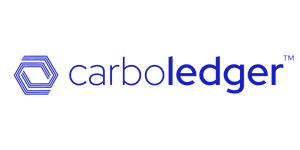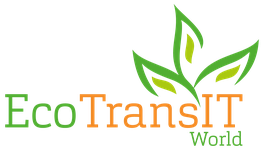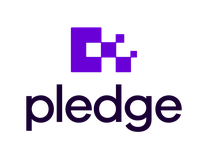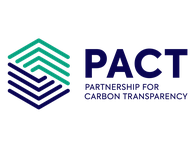What is iLEAP?
The next step in the successful application of Smart Freight Centre’s (SFC) GLEC Framework and the related ISO Standard 14083 is to unlock the digital, automated exchange of high-quality logistics emission information on a global scale. This way, companies of all sizes along the logistics value chain can achieve full transparency into their logistics emissions in a cost-effective and seamless manner.
To accomplish this, the iLEAP project aims to establish the "standard" for seamless connectivity in logistics emissions transparency. iLEAP specifically addresses the unique challenges and considerations of the logistics industry while delivering an incremental pathway to high-quality emissions based on primary activity or emission related data.
Ultimately, the iLEAP “standard” supports the creation of an ecosystem of solutions and the “Internet of Emissions Data” that is open to everyone, maintains data sovereignty, and is based on a sound emissions calculation approach: the GLEC Framework and ISO14083.
iLEAP's vision is to:
iLEAP is a joint SFC and SINE Foundation project
The non-profit organizations Smart Freight Centre (SFC) and SINE are the joint sponsors and operators of the iLEAP project. SFC contributes with its expertise in the development of the GLEC Framework and ISO14083, as well as insights gained from previous digitalization projects.
As a “tech-for-good” non-profit organization, SINE supports iLEAP in the areas of technology strategy, standardization processes, and as co-authors of the iLEAP “Standard”. Previously, SINE was instrumental in the creation of a global digital emissions network for Product Carbon Footprints (the "Pathfinder Network") within WBCSD’s “Partnership for Carbon Transparency.”

Partners in current Pilot Testing phase
Pilot testing of the iLEAP Technical Specifications (the “iLEAP Standard”) is currently underway with the following companies and initiatives participating:
The iLEAP project is also supported by the PACT team of the World Business Council for Sustainable Development (WBCSD) as it fully aligns with all organizations’ vision for higher emissions transparency.
What will this project deliver in 2024?
iLEAP offers a unique opportunity for supply chain actors and tool providers to collaboratively set the standard for logistic emissions data exchange. The project builds and expands on the Product Carbon Footprint Data Model delivered by WBCSD’s PACT team. Their technical specifications can be found here. This project is expected to deliver the following outcomes:
Defining the Logistics Data Model Extension
- Creation of a Data Model, containing all needed technical specifications to enable interoperability at technical, semantical, organizational, and accounting principles levels for logistics actors. The model will be capturing variables for all modes of transport and facilitate the compliance to GLEC Fw and ISO14083.
- Integrating logistics emissions data with carbon accounting at product level (PACT’s data model) in the form of a data model extension.
- Operating a joint pilot between SFC, PACT and other members to assert the fitness and readiness of the specifications for real world adoption.
The Data Model Extension will be openly available to enable global acceptance and implementation by every interested company and organization. The publication is currently under development and hosted here.
Diffusion and adoption
Smart Freight Centre, SINE Foundation, the Open Logistics Foundation and WBCSD will work towards wide diffusion and promotion of the adoption of the Data Model, organizing joint remote workshops and engaging with relevant organizations in the broader ecosystem, in varying project phases.
Why should you join this project?
All actors participating will reap the benefits of being a front-runner and influence the creation of standardized semantics, which are integral in any IT infrastructure used in our industry. In addition, due to the participatory nature of this project, all actors have a neutral space to exchange ideas with peer companies and learn from others’ challenges and best practices.
Immediate Wins
As a participant in the iLEAP project, you would benefit from direct knowledge transfer, gaining hands-on training on a data model that is compliant with GLEC, ISO 14083, and PACT, a unique opportunity to shape the data model based on your business or association needs and requirements, and learning by doing, alongside industry experts and peer companies. Participating now ensures a smooth transition and adoption of the industry standard for data exchange.
Long-Term Gains
Participating in the iLEAP project and implementing the technical specifications would bring you easier access to accurate logistics emission data enabled by the iLEAP standard, enhanced operations and procurement processes, and accelerated decarbonization journey alongside your supply chain partners.
Shippers
As a shipper, you can quantify the impact of logistics within product carbon footprints and leverage this information to reflect supply chain decarbonization efforts at product level. You can additionally, bring in the perspective from both product carbon and logistics emissions data handling.
LSPs and Carriers
Help shape the standard to report logistics emissions to customers. LSPs and carriers are valuable to this project as they bring in expertise in visibility at a transport chain element level and from the specialisation they have across all modalities and asset types which are integral when trying to achieve higher carbon transparency.
Tool Providers
Bring in experience in using data attributes to calculate emissions for different modalities and help shape the technical specifications in detail
Your contribution to iLEAP
We are currently assembling the cohort of project participants to work with us to design and test the data model extension. We differentiate between 3 levels of engagement:
Contributor (lowest commitment)
Companies participating in online workshops to clarify integration-related technical questions. Enterprise or IT Architects, Software Developers, Carbon Accounting and/or LCA specialists are especially suited for this.
Piloter (medium commitment)
Companies willing to test iLEAP-conforming software and to give feedback. Optionally, a Piloter engages with external companies to participate during the Fit-for-purpose testing.
Implementer
Companies implementing the iLEAP technical specifications – either for in-house solutions or as a software provider offering services to iLEAP members and others.
Interested in iLEAP?
Download the Project Description for more information.
You can also find more about the iLEAP work, which is currently in progress, by visiting the iLEAP Technical Specification page.
Would you like to join us?
For more information, contact us via email:
- Violetta Matzoros, Technical Manager, Digitalization lead, Smart Freight Centre: violetta.matzoros@smartfreightcentre.org
- Gabriela Rubio Domingo, Junior Technical Manager, Smart Freight Centre: gabriela.rubiodomingo@smartfreightcentre.org
- Raimundo Henriques, Developer, SINE Foundation: raimundo@sine.foundation
Relevant Publications
iLEAP Technical Specifications
The iLEAP Technical Specifications contain the work-in-progress version of the logistics exchange data model, facilitating main data transactions among supply chain stakeholders. The model is by design interoperable to the WBCSD data model, acting as an extension, to support the calculation of product carbon footprints.
Data Exchange of GHG Logistics Emissions
Smart Freight Centre conducted the "Data Access" project from 2019 to 2022, in collaboration with logistics actors, to address the reluctance to exchange data in the industry. The project's results, comprising both qualitative and quantitative findings, were published in two reports available here. Through this project, it became evident that the fragmented nature of logistics, where subcontracting is common and a necessary part of operations, many actors rely on their suppliers to collect primary data regarding their logistics activity and emissions.
The guidelines contain the first version of logistics data model. This model will be revised during the course of this project to support the calculation of logistics emissions and to be aligned better with product carbon footprinting.
Data model for GHG emission data at product level based on the Pathfinder Framework Version 2, and a protocol for interoperable exchange of GHG emission data at product level.
More on the Digitalization Program
Are you interested in our Digitalization Program? Smart Freight Centre has launched a Digitalization Program led by Violetta Matzoros, Technical Manager. The COVID-19 pandemic has highlighted the importance of using digital data flow in logistics to support decision-making and redesign physical transportation systems to achieve various objectives, including emission reduction.
In addition, the regulatory scene in Europe but also across the globe, has shifted to more accelerated efforts in the last years to achieve the Paris Agreement. The Program's strategy is to turn logistics data into a common trusted good and enable B2X (business to anyone) level data sharing and enable our members achieve their decarbonization goals. We will be accepting projects based on relevance to this strategy and available capacity. Are you interested in supporting this work? Reach out to us with questions or suggestions for potential projects.









